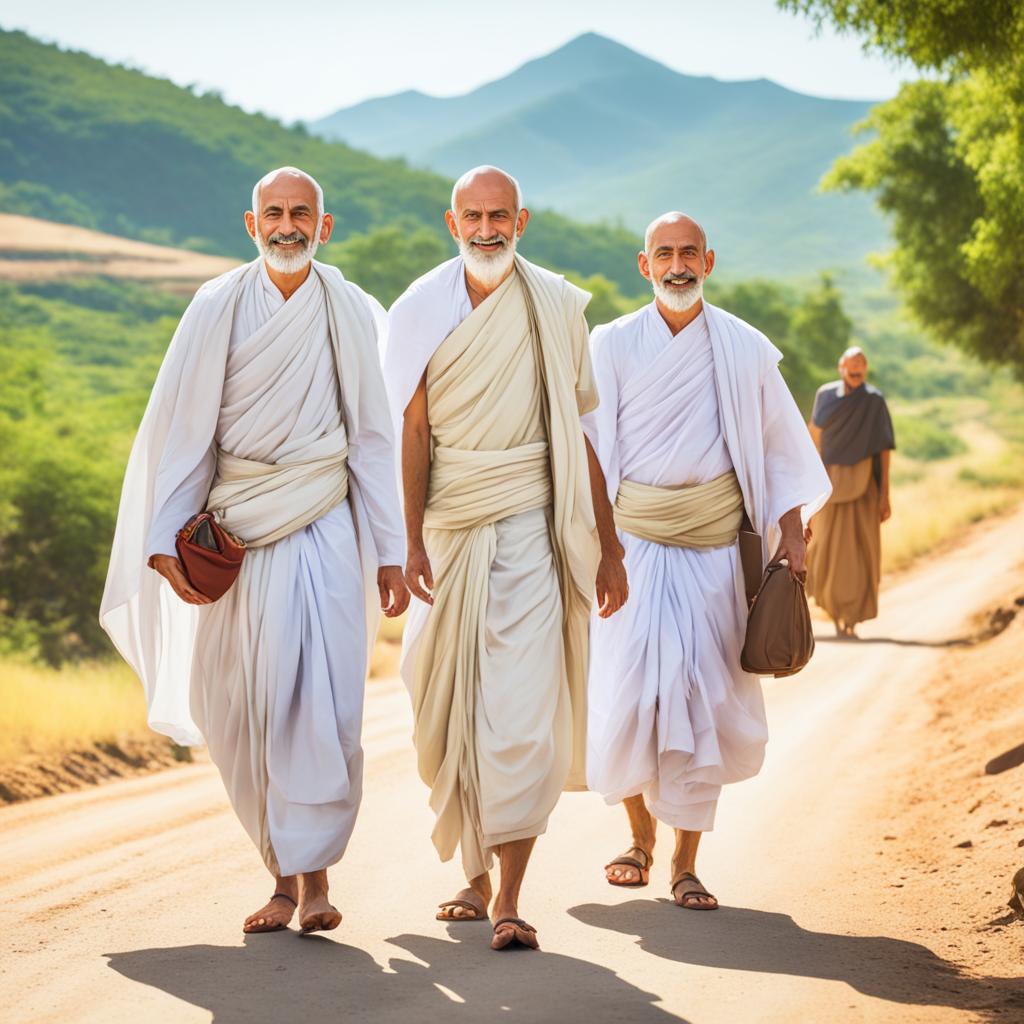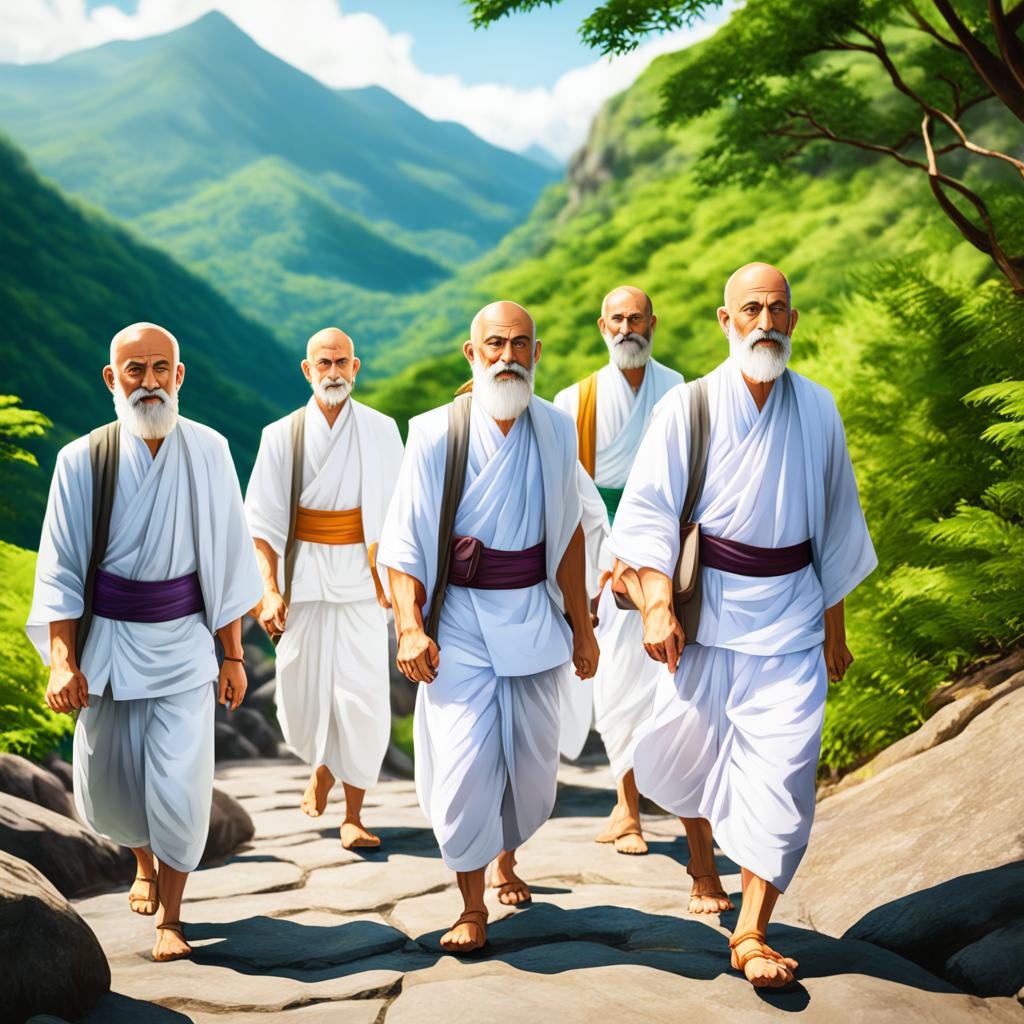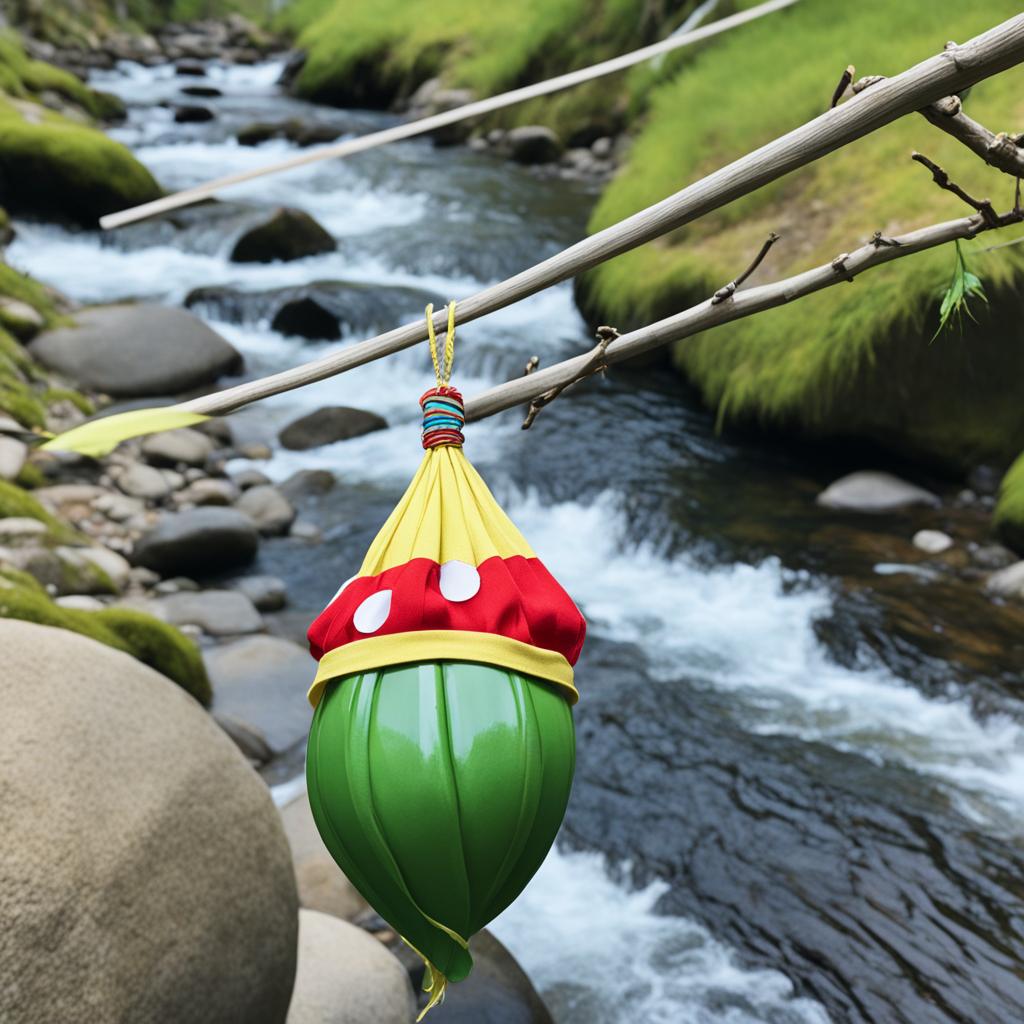When you think of travel, what comes to mind? Adventurous expeditions, jet-setting across the globe, or road trips with friends? But have you ever wondered how Jain monks, dedicated to ancient traditions, navigate the modern world while adhering to their strict principles? Do they settle for a sedentary life or find innovative solutions to maintain their integrity?
Join us on a journey as we delve into the unique lifestyle of Jain monks and uncover the surprising ways they travel while upholding their values of nonviolence and detachment. From their rigorous daily routines to their minimal possessions, and the importance of community, discover the remarkable ways Jain monks navigate the world with grace and purpose.
The Unique Lifestyle of Jain Monks

When a person renounces the worldly life and is initiated into monkhood or nunhood, they take five major vows: non-violence, truthfulness, non-stealing, celibacy, and non-attachment. These vows shape their lifestyle, prohibiting harm to any living being, lying, stealing, engaging in sexual activity, and possessing material possessions. Jain monks and nuns dedicate their lives to spiritual upliftment and guiding householders on their own spiritual paths.
Jain monks and nuns live a lifestyle that is truly unique. They adhere to a set of principles and values that guide their every action and decision. By embracing non-violence, they strive to bring harmony and compassion to the world. Their commitment to truthfulness encourages honest communication and self-reflection. Through non-stealing, they practice contentment and detachment from material possessions. Celibacy fosters spiritual focus and purity of mind. And lastly, non-attachment cultivates a sense of freedom from worldly desires.
This distinctive lifestyle exemplifies the essence of Jain philosophy, which emphasizes the interconnectedness of all living beings and the importance of living in harmony with nature. Jain monks and nuns play a vital role in society by providing spiritual guidance and inspiring others to lead a life of peace, compassion, and self-discipline.
The Rigorous Daily Routine of Jain Monks

Jain monks lead a disciplined and rigorous daily routine that symbolizes their commitment to a life of simplicity and non-violence. This routine is designed to cultivate self-discipline, spiritual growth, and minimize harm to all living beings.
Every day begins before dawn, as Jain monks wake up early to make the most of their time for spiritual practices. The morning hours are dedicated to meditation, reflection, and seeking knowledge. This quiet and introspective period allows them to connect with their inner selves and find clarity and peace.
As practitioners of ahimsa (non-violence) and aparigraha (non-attachment), Jain monks observe strict eating and fasting practices. They follow a vow to abstain from food and drink between sunset and sunrise. Some monks even take additional vows of strict fasting, abstaining from food for extended periods.
A distinctive aspect of the daily routine of Jain monks is their mode of travel. Regardless of distance, Jain monks travel exclusively on foot and walk barefoot. This practice is rooted in their deep reverence for all forms of life and the desire to minimize harm to insects and other living beings. By walking mindfully, Jain monks demonstrate their commitment to non-violence with every step.
Below is a detailed table illustrating the daily routine of Jain monks:
| Time | Activity |
|---|---|
| Before dawn | Meditation and introspection |
| Morning hours | Seeking knowledge and spiritual growth |
| Between sunset and sunrise | Abstaining from food and drink |
| Throughout the day | Barefoot and on-foot travel |
Jain monks’ rigorous daily routine embodies their deep commitment to non-violence, self-discipline, and leading a life filled with spiritual pursuits. It is a testament to their unwavering dedication to the values and principles of Jainism.
The Minimal Possessions of Jain Monks

Jain monks and nuns lead a life of simplicity and minimalism, owning only three essential items that serve their spiritual and practical needs.
The first possession is a peacock-feather whisk, which symbolizes purity and is used by monks to clean their sitting area from insects. This act of gently sweeping away any living creatures reflects Jainism’s core principle of non-violence and reverence for all life forms.
The second possession is a water pot, used by Jain monks to carry water for their drinking and other daily needs. It represents self-sufficiency and reminds them to practice moderation in their consumption of resources.
The third and most important possession for Jain monks is their collection of scriptures. These sacred texts serve as a guide for their spiritual practice, providing teachings, rituals, and ethical guidelines to follow. Spiritual learning and study of these scriptures are integral to a monk’s journey towards enlightenment.
The minimal possessions of Jain monks demonstrate their commitment to detachment from material desires and the pursuit of spiritual enlightenment. By owning only these essential items, they embody the Jain principle of non-attachment and focus their energy on their spiritual growth and service to others.
Jain Monks and Non-Violence
Non-violence, known as ahimsa, is a foundational principle of Jainism and an essential belief for Jain monks. They practice non-violence by diligently avoiding harm to any living being, regardless of its size or form. Every step they take is carefully calculated, ensuring they do not inadvertently cause harm to even the tiniest creatures such as insects along their path. Jain monks demonstrate their commitment to non-violence by using brooms to clear their way, ensuring that their journey remains peaceful and compassionate.
In their pursuit of spiritual growth, Jain monks also prioritize the impact they have on the environment. They take great care to minimize their ecological footprint, recognizing the interconnectedness of all living beings. By adhering to a lifestyle of non-violence, Jain monks serve as role models, inspiring others to embrace peaceful coexistence and compassion in their own lives.
Jain Monks and Travel Bans
Orthodox Jain monks and nuns adhere to a strict travel ban, abstaining from journeys outside of India. This limitation is based on their commitment to a life of non-violence and detachment, essential principles of Jainism. The travel ban ensures that Jain monastics minimize harm to all living beings and maintain their spiritual practices within the confines of their homeland. Only those who have not yet undertaken the final monastic vows are allowed to travel abroad.
As a result of this travel ban, the movement of Jain religious leadership outside of India is virtually nonexistent, preserving the strong presence of Jainism within the country. However, the challenges posed by globalization and the dispersion of the Jain community have led to innovative approaches to serve the expatriate Jain population in other countries, such as the United States.
In order to cater to the needs of the diaspora community, specialized orders of Jain monks and nuns have been established. These dedicated individuals serve as spiritual guides and leaders, helping the expatriate community in their pursuit of Jain ideals and practices. Through their presence and teachings, these specially appointed monastics play a crucial role in preserving the essence of Jainism, while adapting to the diverse needs and circumstances of the Jain community outside of India.
The commitment to non-violence and detachment remains unwavering, even in the face of the challenges posed by the modern world. Despite the travel ban, Jain monastics continue to play an important role in upholding and spreading the teachings of Jainism, ensuring that the principles of non-violence, truthfulness, and non-attachment are understood and practiced by all.
The Importance of Community for Jain Monks
Jain monks and nuns lead a renounced life, dedicated to spiritual growth and the practice of non-violence. However, they rely heavily on the support and cooperation of the Jain community, both in India and abroad. The interdependent relationship between renouncers and laypeople is a fundamental aspect of Jain tradition and plays an essential role in sustaining the monastic order.
The Jain community recognizes the importance of providing food, shelter, clothing, and other basic necessities to the monastics. Laypeople go above and beyond to ensure that the monks and nuns can focus on their spiritual pursuits and remain detached from material possessions.
This symbiotic relationship between the monastics and the community is built on mutual respect, trust, and compassion. It allows the Jain monks and nuns to fulfill their spiritual aspirations while encouraging the laypeople to practice generosity and selflessness.
The support from the community doesn’t stop at providing physical sustenance. Laypeople also seek guidance and teachings from the monastics to deepen their understanding of Jain philosophy and improve their own spiritual journeys. The Jain monks and nuns serve as mentors, offering wisdom, counseling, and spiritual insights to guide householders on their spiritual paths.
The community’s role in supporting Jain monastics is not limited to India alone. It extends to those who have taken monastic vows and serve the expatriate Jain community in countries like the United States. This global network of support ensures that Jain monks and nuns have the necessary resources and assistance wherever they may be.
Through this interconnectedness, the community reinforces the values of compassion, non-violence, and non-attachment, which are foundational principles of Jainism. The synergy between the monastics and the community creates an environment conducive to spiritual growth, benefiting both the renouncers and the laypeople.
The Interdependent Relationship between Jain Monks and Laypeople
| Role of Jain Monks and Nuns | Role of Jain Community |
|---|---|
| Practice non-violence and lead a renounced life | Provide food, shelter, and other basic necessities |
| Offer spiritual guidance and teachings | Seek guidance and counseling |
| Uphold Jain values and principles | Promote the practice of compassion and selflessness |
| Facilitate spiritual growth | Deepen understanding of Jain philosophy |
Spreading Jainism and Promoting Universal Teachings
Jain monks and nuns are dedicated to their spiritual growth and spreading the teachings of Jainism. They actively engage in preaching, discussions, seminars, and camps to provide guidance and promote universal values such as non-violence, truthfulness, and non-attachment. Through their efforts, Jain monks aim to make the teachings of Jainism accessible to all, transcending cultural and religious boundaries.
Utilizing their deep understanding of Jain philosophy, Jain monks emphasize the relevance of their teachings in today’s world. They address pressing issues such as political conflicts and environmental degradation, offering solutions grounded in the principles of Jainism. By advocating for non-violence, sustainable living, and ethical decision-making, Jain monks inspire individuals to lead more conscious and compassionate lives.
Jain monks and nuns believe that their teachings hold universal value, benefiting not only the Jain community but also all living beings. Their endeavors are driven by the belief that Jainism has the potential to create a more harmonious and equitable society. Through their tireless efforts, Jain monks work towards establishing peace, social justice, and environmental stewardship—an enduring legacy for the betterment of humanity and the planet.


